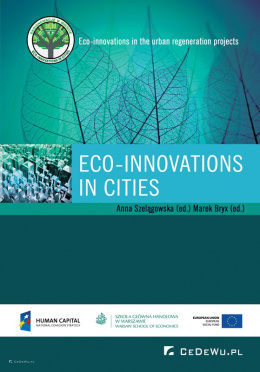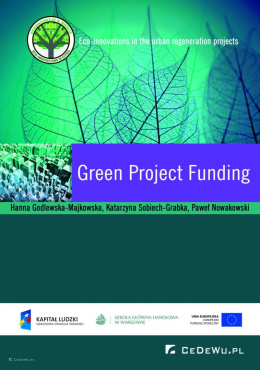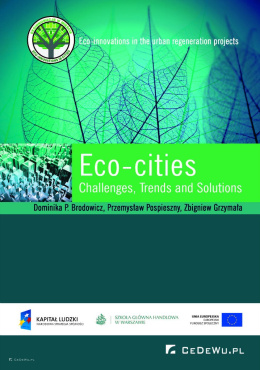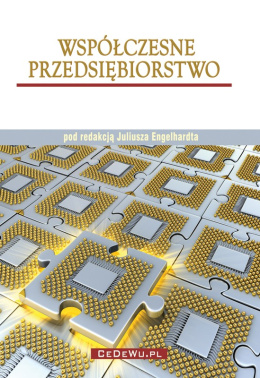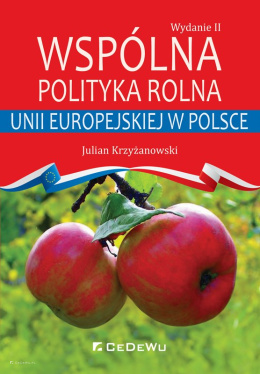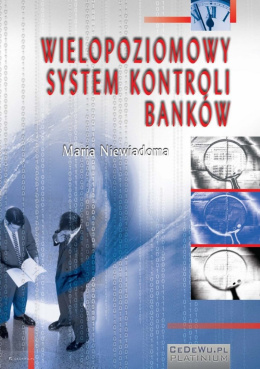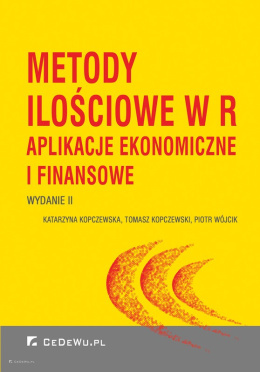-
Shopping cart is empty
-
x

-
Shopping cart is empty
-
x
- Categories
-
New Models of Urban Entrepreneurship. Context for Development
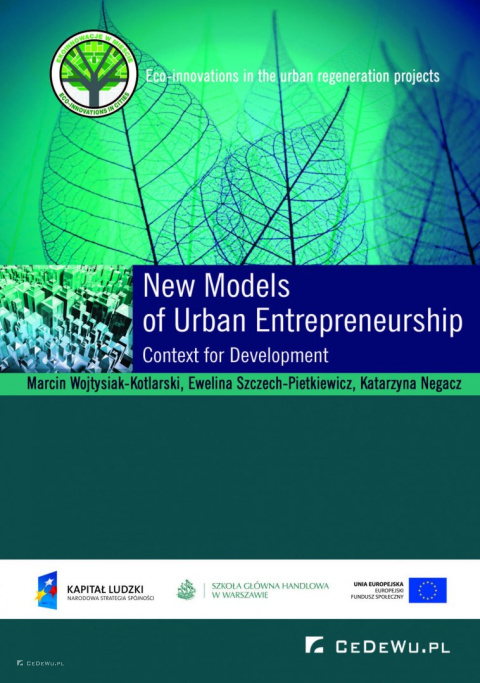
| Shipping within | 24 hours |
| The bar code | |
| ISBN | 978-83-7941-220-4 |
| EAN | 9788379412204 |
Download
Pobierz plik: E-book 5 – New Models of Urban Entrepreneurship. Context for Development (pdf)
Are you already interested in eco-economy, which is one of the most widely discussed terms in contemporary economics?
Would you like to have a deeper understanding regarding challenges of combining public and private interest in urban contexts?
Are you aware of importance of mechanisms on national or community levels aimed at supporting urban entrepreneurship?
Have you heard of the green city concept?
Do you know that numerous cities around the world try to win their future by becoming friendly clusters for start-ups?
Are you familiar with the fact that corporations pay more and more attention to serve societies?
Could you give examples of green professions, which are just emerging?
What new models of urban entrepreneurship could be effective in the near future?
This book prepared by academics from Warsaw School of Economics – Professor Marcin Wojtysiak-Kotlarski, Ewelina Szczech-Pietkiewicz, PhD and PhD student Katarzyna Negacz – will help you develop your own answers to the above questions.
Authors wish you a pleasant reading!
Publisher's note 7
Introduction 10
Chapter 1
Principles of eco-economy - Katarzyna Negacz 12
Introduction 12
1.1. Development of ecological economics 13
1.1.1. About the concept of ecological economics 13
1.1.2. Invention and evolution of the field 16
1.1.3. Scope of the field 18
1.1.4. Role of ecological economics - translating theory into practice 19
1.2. Variations of ecological economics 20
1.2.1. Types of economics linked to the natural environment 20
1.2.2. Schools of ecological economics 27
1.3. Future of ecological economics 30
1.3.1. Future development of the field 30
Summary 35
Bibliography 35
Chapter 2
Concept of urban entrepreneurship - Ewelina Szczech-Pietkiewicz 39
Introduction 39
2.1. Entrepreneurship and urban growth 39
2.2. Determinants of urban entrepreneurship 41
2.2.1. Demographics 42
2.2.2. Natural cost advantages 44
2.2.3. Agglomeration advantages 44
2.2.4. Entrepreneurial spirit as form of social capital 47
2.2.5. Culture and institutions (State sector) 49
Final Remarks 50
Bibliography 51
Chapter 3
Private Interest vs. Public Interest - Ewelina Szczech-Pietkiewicz 53
Introduction 53
3.1. Concept of Public Private Partnership (PPP) 54
3.2. Benefits for the stakeholders 55
3.3. Barriers and risks of PPP implementation 56
Final Remarks 59
Bibliography 60
Chapter 4
Cooperation with city authorities - Ewelina Szczech-Pietkiewicz 61
4.1. Governance in metropolitan areas 61
4.2. Multi-level governance as a new model of urban cooperation with authorities 62
4.3. Urban authorities' actions towards promotion of urban entrepreneurship - national level 65
4.3.1. Special Economic Zones 65
4.3.2. Urban Economic Zones 66
4.3.3. Critique of public support for urban entrepreneurship 68
4.4. EU Cohesion Policy actions towards promotion of urban entrepreneurship - cooperation with community level authorities 69
Final Remarks 72
Bibliography 72
Chapter 5
Start-ups - Marcin Wojtysiak-Kotlarski 73
Introduction 73
5.1. Understanding a Start-up Company 74
5.2. Selected Challenges for Financing New Business 76
5.3. Entrepreneur and Entrepreneurship in Start-ups 78
5.4. Clusters and support of the state or the city 79
5.5. Heading for the future 81
Bibliography. 83
Chapter 6
Socially responsible investments - Marcin Wojtysiak-Kotlarski 86
Introduction 86
6.1. Key terms explained 87
6.2. Socially responsible investments and social entrepreneurship - a link? 89
6.3. Financial Aspects of SRI 90
6.4. SRI in practice - selected examples 92
6.5. Agenda for the future 93
Bibliography 96
Chapter 7
Sustainable Urban Development and Emerging Professions - Katarzyna Negacz 98
Introduction 98
7.1. The concept of sustainable urban development 99
7.2. Thematic approach to sustainable urban development 111
7.2.1. Energy and water resources 111
7.2.2. Transportation systems 112
7.2.3. Waste management and recycling 114
7.2.4. Construction and design of buildings 116
7.3. New green professions 121
7.3.1. Sustainable jobs in cities 121
7.3.2. Learning sustainable professions 124
Summary 126
Bibliography 126
New Models of Urban Entrepreneurship
CASE STUDIES
City study 1
Sustainable Singapore 129
The Singapore Green Building Council 130
Singapore Sports Hub 132
Tree House - vertical gardens 133
Bibliography 134
Case Study 2
Ecomuseums - chance for highlighting towns 135
Mix of culture, fun and adventure 135
Ecomuseum in Cap de Cavallería 135
Ebre Delta National Park Eco-Museum 136
Bibliography 137
Case Study 3
MANCHESTER - from municipal socialism to new entrepreneurial model of development 138
Case Study 4
ENTREPENEURIAL CITY - new paradigm of urban development by OECD 140
Case study 5
BARCELONA - cooperation of public and private stakeholders at Barcelona 22@ Innovation District 142
Bibliography 149
Case Study 6
Re-empresa: a program of Deputació de Catalunya on company's re-purchase 150
Case Study 7
Support of entrepreneurs by Regional Government of Catalonia - chosen programs and actions 151
Case study 8
Innovation clusters around the world - any lessons learned for Poland? 154
1. Silicon Valley, California 154
2. Tech City, London 157
3. The entrepreneurial scene in Helsinki, Finland 161
Case study 9
More than Money Careers 165
Choose your sustainable career 165
Bibliography 166
Case Study 10
How to profit from being green in cities? Benefits for city's economy 167
Case Study 10.1. Economic benefits of green spaces 167
Case Study 10.2. Role of the recycling industry in the economy - South Carolina recycling industry 170
Case Study 10.3. Benefits of green transport in Copenhagen 171
Table of Contents 174
Figure of Contents 175
Polub nas na Facebooku




